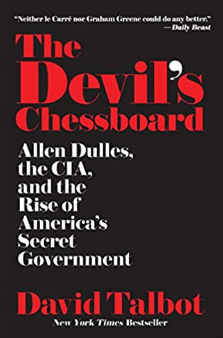JFK Aide Arthur Schlesinger Jr.'s Dying Regret
“He said he wished he’d written a book about the CIA. He felt the CIA was terribly corrupting our democracy.”
I remember the day Arthur M. Schlesinger Jr. died in 2007.
Schlesinger, a famous American historian and social critic, had come of age during the Kennedy administration, where he served as an assistant to the president and unofficial "court historian.” There seemed to me to be a boyish quality to Schlesinger, who was often pictured with the fatherly-looking Kennedy, even though he was about my current age (44) when he joined JFK’s administration.
I remember being a bit sad when I learned Schlesinger had died. His politics were not mine—though a staunch anti-communist, Schlesinger was also an “unrepentant and unreconstructed liberal and New Dealer”—but there was something magnetic about his personality, romantic even. He was one of the first intellectuals to rise to prominence in a White House, and he embodied the youth and optimism of Kennedy’s Camelot.
The Arthurian beauty and promise of JFK’s administration was of course tragically cut short on November 22, 1963, in Dallas, Texas. And one of the things that always bothered me was Schlesinger’s acquiescence to the Warren Commission, despite its many flaws (some would say whitewashing).
Unlike some in JFK’s inner circle, Schlesinger showed no interest in looking deeper in Kennedy’s assassination. He was content to accept the Commission’s findings, in part because he was afraid to look—both figuratively and literally.
“I can’t look and won’t look,” Schlesinger told respected Warren Commission critic Ray Marcus, who attempted to show the historian evidence, including photographic stills from the Zapruder film, that he believed pointed to a conspiracy.
Part of me has long wondered how someone as smart as Schlesinger could just accept the facts he was given. But now I think I know: Schlesinger was simply scared.
Following Kennedy’s assassination, Schlesinger remained close to the power structure in DC. He swapped letters with former CIA director Allen Dulles and wrote articles defending America’s global Cold War against the USSR.
“When it came to fighting the cultural Cold War, Schlesinger and Dulles were…brothers in arms,” writes historian David Talbot in his CIA history The Devil’s Chessboard.
Eventually, however, Schlesinger grew close enough to the CIA that he began to see it as a frightening, even sinister force. Talbot recalls a 1978 dinner in which Schlesinger was seated next to CIA Director Admiral Stansfield Turner, who “regaled him with CIA horror stories.”
Some of these stories touched on James Jesus Angleton, a figure whose deeds were dark enough that, as I recently pointed out, he died convinced the CIA was evil and he would burn in hell for the crimes he committed in its service.
What precisely these deeds were, Angleton did not say. But some of them had apparently gotten back to Turner, who felt his own need to unburden himself by sharing certain details with the Harvard historian—and perhaps to distance himself from the deeds.
“Turner obviously regards Angleton as a madman and cannot understand a system under which he gained so much power,” Schlesinger would later record in his journal.
How people as mad and ruthless as Dulles and Angleton (and many others) could rise in the US intelligence apparatus is a great question. But it’s one Schlesinger never looked into.
Decades went by, and the historian never dared to look behind the curtain of the system. It was almost as if the words he had told Marcus years before—“I can’t look and won’t look, —had become a broader defense mechanism, not just to JFK’s assassination, but to the whole rotten system. To pull back its curtain would reveal horrors Schlesinger did not wish to see or was afraid to find.
Like Angleton, on his death bed Schlesinger would find the courage to confront some his more complicated feelings about The Agency.
Schlesinger’s son, Andrew, recounted something his father told him as he was dying. Though severely weakened by Parkinson’s and “withering away,” Schlesinger grew “agitated” when his son asked him if there was a book he wished he had written before he died.
“He said he wished he’d written a book about the CIA. He felt the CIA was terribly corrupting our democracy,” Andrew Schlesinger told Talbot. “He emotionally was saying [this]. He believed until the end that the CIA was undermining our democracy.”
Related Links
Why Legacy Media Won’t Cover the CIA’s Election Meddling



Excellent. Some copy nits:
a double “served as” in the 2nd graf
further down, “the historian refused never dared”
One "and" should have been an "as." Pity. How to catch such stuff...